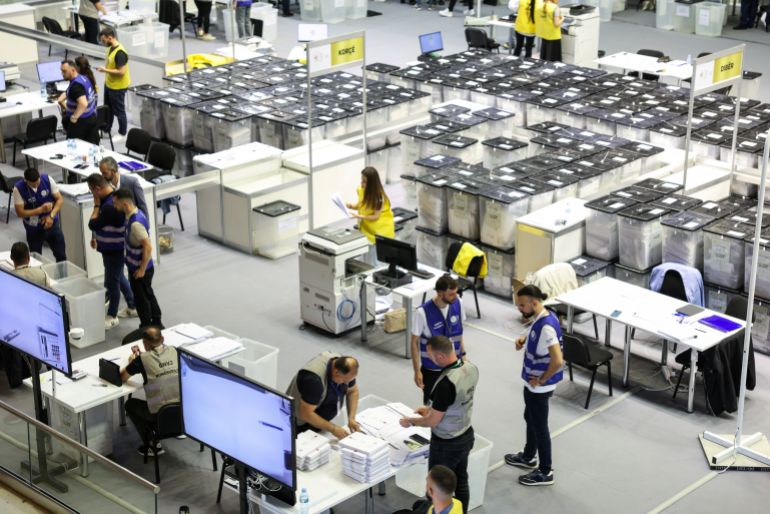Albania’s ruling Socialist Party has won the country’s parliamentary elections, according to a near-complete vote count, securing Prime Minister Edi Rama an unprecedented fourth term in office.
With about 96 percent of ballots counted, the official results on Tuesday showed the Socialist Party got 82 seats in the 140-seat parliament with 52 percent of the votes.
The opposition centre-right Democratic Party secured 51 seats with 34 percent of votes. Three other small parties will take the rest of the seats.
The threshold for entry into the assembly in Albania is one percent for parties and five percent for party alliances.
The full results are expected later on Tuesday. If confirmed, the results would be an increase from the last election, where Rama’s party won 49 percent of the vote, and would give him a majority to form a government.
Delay possible
The Central Election Commission, the electoral executive, has said that by law, the final results come out 48 hours after the vote ends.
The results may be delayed following a request of the opposition not to consider about 53,000 ballots mailed from the diaspora in neighbouring Greece, claiming they are manipulated.
For the first time, those in the diaspora could cast postal votes. About 195,000 mailed in their votes.
Eligible voters in Albania and abroad voted to elect 140 lawmakers for a four-year mandate in the Balkan nation. Because of mass emigration, the country of 2.4 million people has a total of nearly 3.7 million eligible voters.
Diaspora votes from Greece may move a number of seats in three or four areas in favour of the ruling party. The opposition claims they were manipulated by Socialist supporters. The postal company said it has confirmation signatures of all the voters in Greece.
Rama, who has been in power since 2013, focused his campaign on working to gain membership in the European Union by 2030. Sali Berisha, the candidate of the conservative Democratic Party, argued that Albania still is not ready for the bloc’s membership.
Some analysts were surprised by the strength of Rama’s success, expecting that a series of corruption scandals and the recent unrest in the country due to a crackdown on the opposition would affect his results.
A joint international observation mission noted that despite being competitive and professionally managed, the election process so far was marked by the ruling party’s misuse of public resources, a confrontational and polarising tone, the two main political parties using divisive language, non-transparent financing, and unbalanced media coverage of smaller parties.
Source: Aljazeera

Leave a Reply